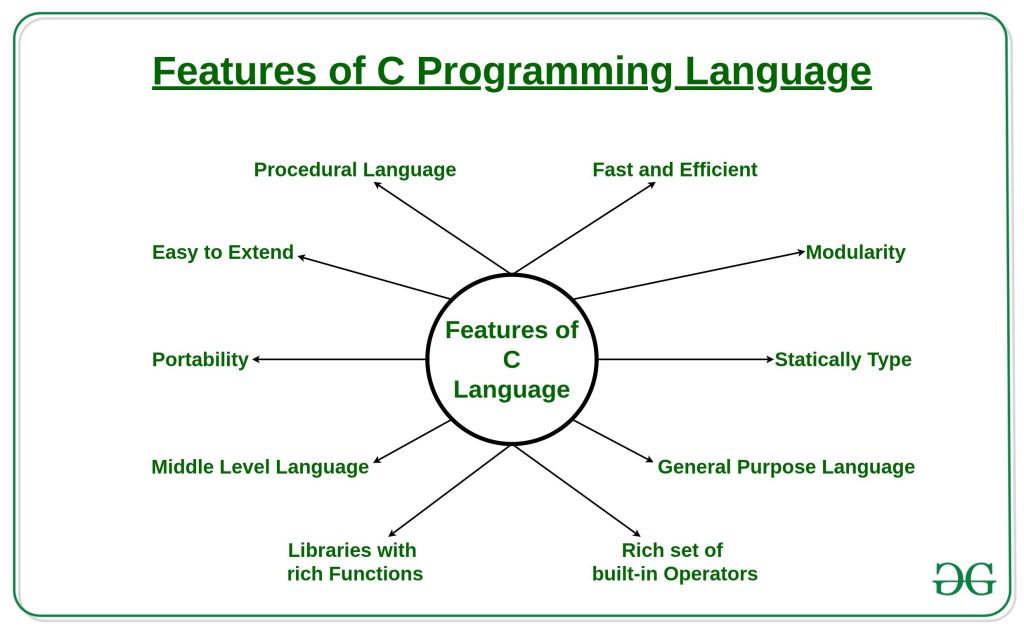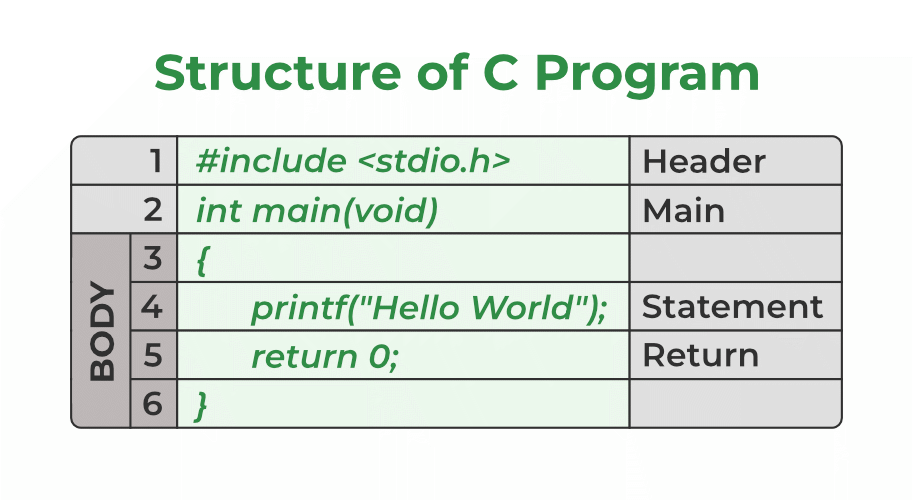What is C/C++?
C
C is a general-purpose programming language created by Dennis Ritchie at the Bell Laboratories in 1972.
It is a very popular language, despite being old. The main reason for its popularity is because it is a fundamental language in the field of computer science.
C is strongly associated with UNIX, as it was developed to write the UNIX operating system.
Why Learn C?
# It is one of the most popular programming language in the world.
# If you know C, you will have no problem learning other popular programming languages such as Java, Python, C++, C#, etc, as the syntax is similar
# C is very fast, compared to other programming languages, like Java and Python
# C is very versatile; it can be used in both applications and technologies
It is a very popular language, despite being old. The main reason for its popularity is because it is a fundamental language in the field of computer science.
C is strongly associated with UNIX, as it was developed to write the UNIX operating system.
Why Learn C?
# It is one of the most popular programming language in the world.
# If you know C, you will have no problem learning other popular programming languages such as Java, Python, C++, C#, etc, as the syntax is similar
# C is very fast, compared to other programming languages, like Java and Python
# C is very versatile; it can be used in both applications and technologies
C++
C++ is a cross-platform language that can be used to create high-performance applications.
C++ was developed by Bjarne Stroustrup, as an extension to the C language.
C++ gives programmers a high level of control over system resources and memory.
Why Learn C++?
# C++ is one of the world’s most popular programming languages.
# C++ can be found in today’s operating systems, Graphical User Interfaces, and embedded systems.
# C++ is an object-oriented programming language which gives a clear structure to programs and allows code to be reused, lowering development costs.
# C++ is portable and can be used to develop applications that can be adapted to multiple platforms.
# As C++ is close to C, C# and Java, it makes it easy for programmers to switch to C++ or vice versa.
C++ was developed by Bjarne Stroustrup, as an extension to the C language.
C++ gives programmers a high level of control over system resources and memory.
Why Learn C++?
# C++ is one of the world’s most popular programming languages.
# C++ can be found in today’s operating systems, Graphical User Interfaces, and embedded systems.
# C++ is an object-oriented programming language which gives a clear structure to programs and allows code to be reused, lowering development costs.
# C++ is portable and can be used to develop applications that can be adapted to multiple platforms.
# As C++ is close to C, C# and Java, it makes it easy for programmers to switch to C++ or vice versa.
Features



C Modules
- • Module 1 – Introduction to C Programming
- • Module 2 – Variables and Data Types
- • Module 3 – Input and Output
- • Module 4 – Operators and Expressions
- • Module 5 – Condition Structures
- • Module 6 – Loop Structures
- • Module 7 – Control Structures
- • Module 8 -- Functions & Recursion
- • Module 9 – Arrays & Strings
- • Module 10 – Classes & Oop's Concept
- • Module 11 – Structures, Unions & Inheritance
- • Module 12 – File Handling & Pointers
- • Module 13 – Preprocessor Directives & encapsulation
- • Module 14 – Exception Handling
- • Module 15 – C Standard Library
C++ Modules
- • Module 1 – Introduction to C++ Programming
- • Module 2 – Variables and Data Types
- • Module 3 – Input and Output
- • Module 4 – Operators and Expressions
- • Module 5 – Condition Structures
- • Module 6 – Loop Structures
- • Module 7 – Control Structures
- • Module 8 -- Functions & Recursion
- • Module 9 – Arrays & Strings
- • Module 10 – Classes & Oop's Concept
- • Module 11 – Structures, Unions & Inheritance
- • Module 12 – File Handling & Pointers
- • Module 13 – Preprocessor Directives & encapsulation
- • Module 14 – Exception Handling
- • Module 15 – C++ Standard Library
